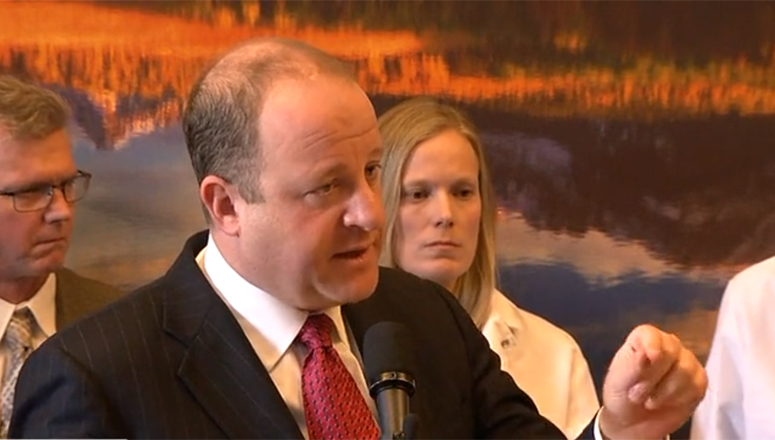Governor Jared Polis issued a statewide Stay-at-Home order for Colorado.
The Stay-at-Home order goes into effect Thursday (March 26).
The Governor’s Executive Order requires that all people in the state stay at their place of residence, and that they make every effort possible to conduct only essential activities necessary to maintain health and well-being, such as getting groceries, obtaining medical supplies or medication, and/or engaging in outdoor activities like walking, hiking or running while following other social distancing practices.
I’ve announced an emergency, temporary Stay at Home Order for Colorado starting Thursday, March 26. #COVID19Colorado pic.twitter.com/PifPmbaVnc
— Governor Jared Polis (@GovofCO) March 25, 2020
All businesses and government functions considered nonessential will be closed. These include salons, most retail stores, bowling alleys, movie theaters and more.
Essential business allowed to stay open include health care providers, bankers, grocers, child care facilitators and shelter operators.
Liquor stores, marijuana dispensaries and firearm retailers are considered critical businesses in the new order and will remain open.
Critical workplaces are exempt from the statewide mandate and include:
- Health care operations.
- Critical infrastructure, including utilities, fuel supply and transmission, public water, telecommunications, transportation, hotels, and food supply chain.
- Critical manufacturing, including food, beverages, chemicals, medical equipment, pharmaceuticals, sanitary products and agriculture.
- Critical retail, including grocery stores, liquor stores, farms, gas stations, restaurants and bars for takeout, marijuana dispensaries but only for medical or curbside delivery, hardware stores.
- Critical services, including trash and recycling, mail, shipping, laundromats, child care, building cleaning and maintenance, auto supply and repair, warehouses/distribution, funeral services, and animal shelters.
- News media.
- Financial institutions.
- Providers of basic necessities to economically disadvantaged populations.
- Construction.
- Defense.
- Public safety services like police and fire.
- Vendors that provide critical services to the workplaces above.





